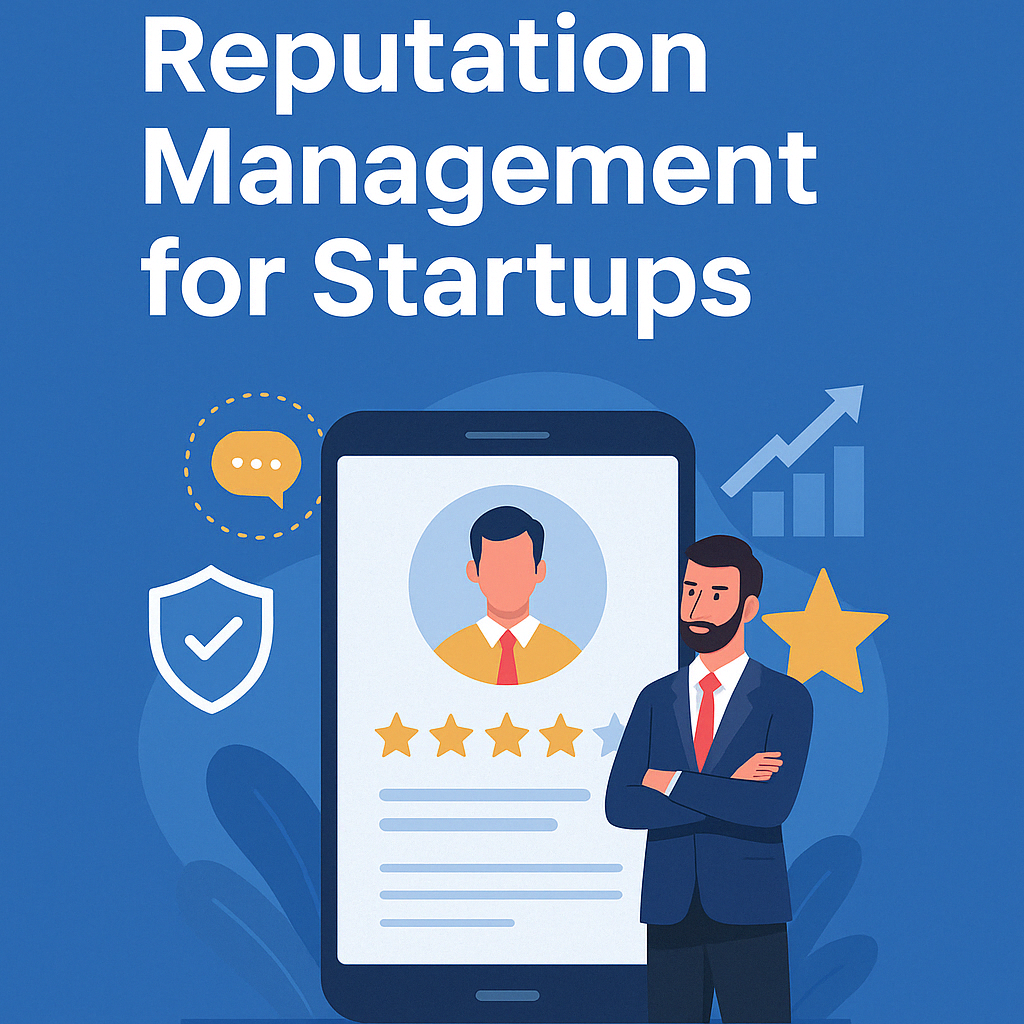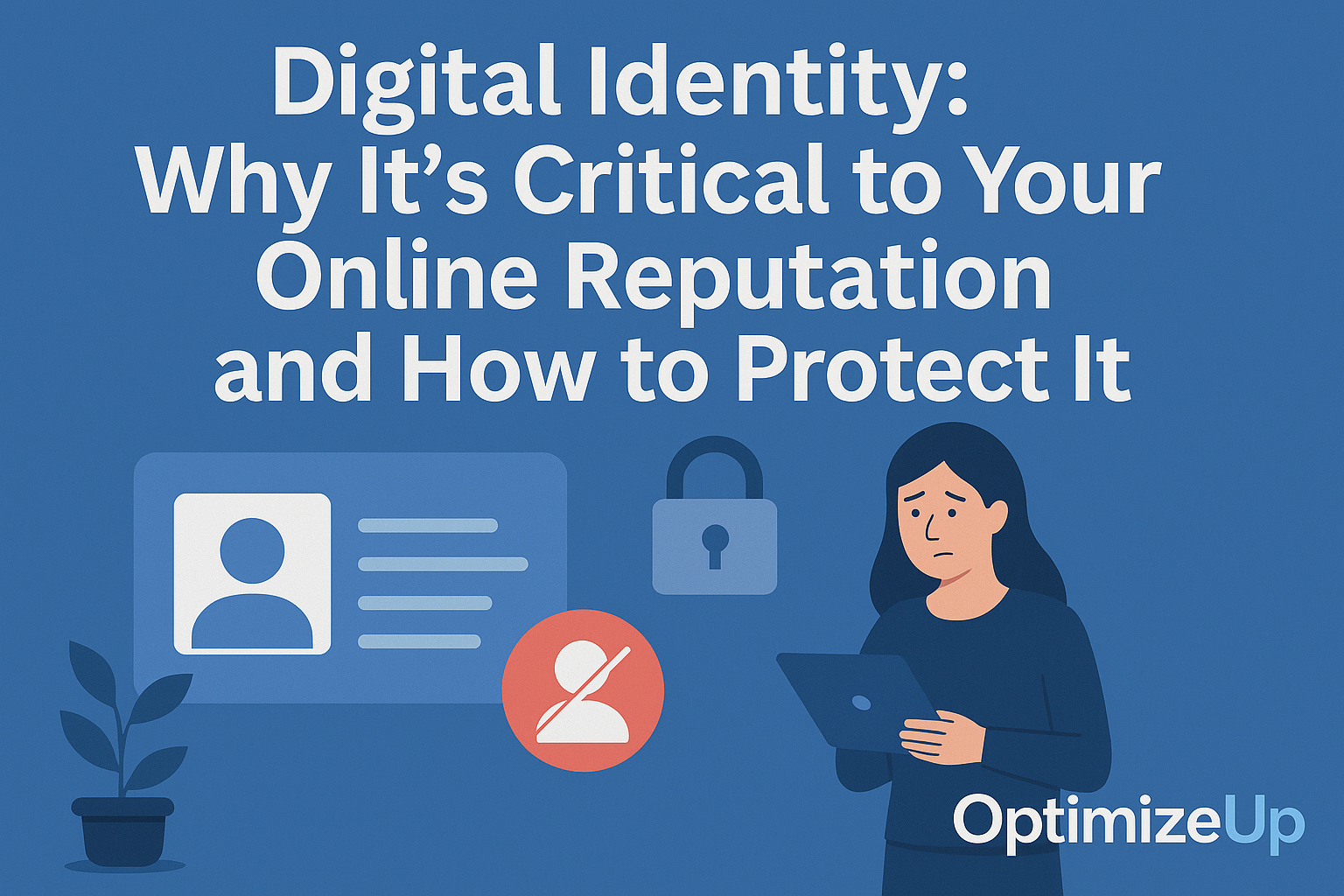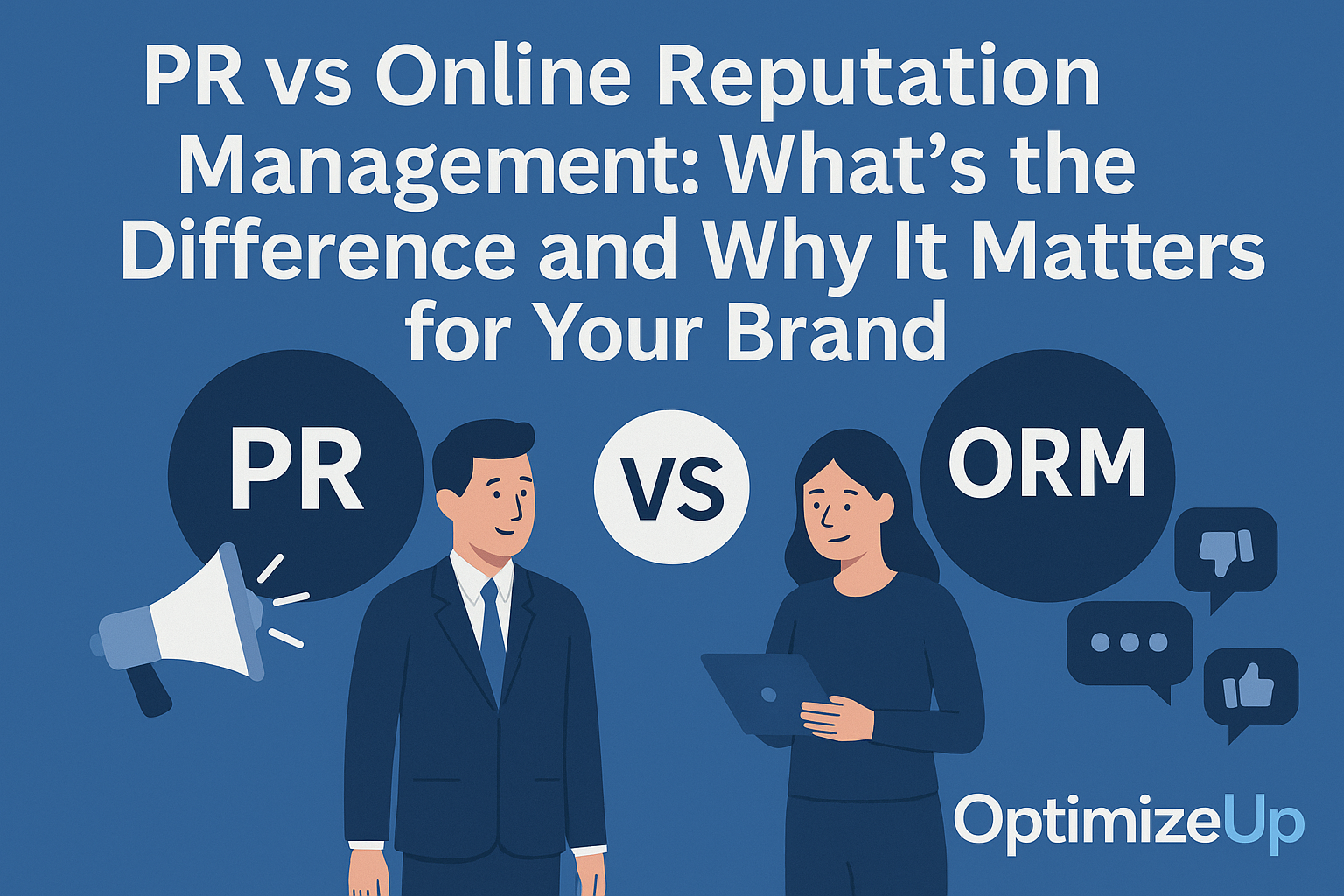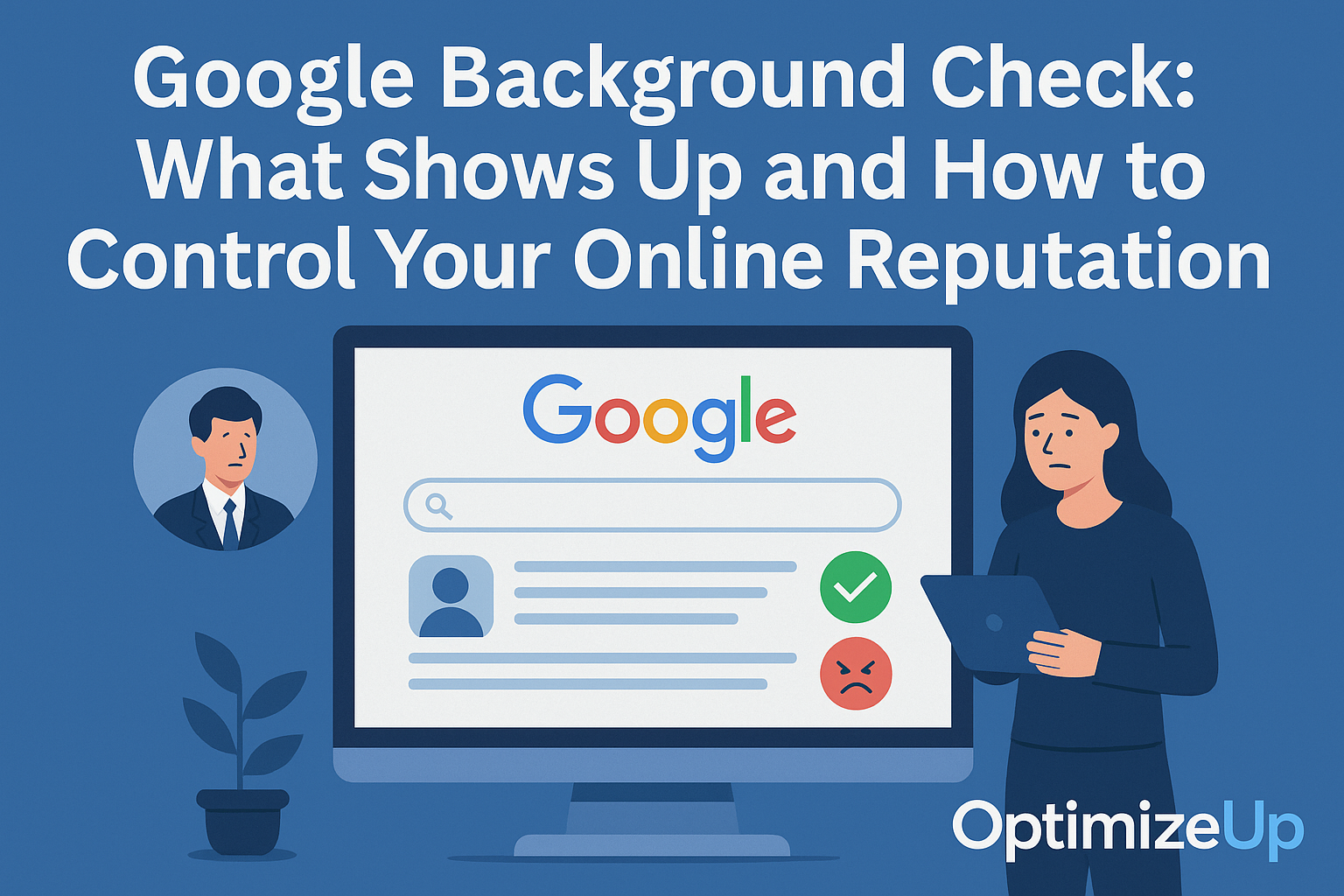The Stakes Are Higher for Startups
A startup’s reputation is often its most valuable and fragile asset. With little brand history and limited name recognition, early perception becomes reality in the minds of customers, investors, and the media.
Whether you’re a seed-stage tech company or a bootstrapped ecommerce brand, startup reputation management is not just about reviews—it’s about credibility, resilience, and visibility. A misstep in your first 18 months can sink your launch, repel funding, or destroy employee morale.
A Harvard Business Review article reminds founders that reputation shapes market entry and long-term valuation. If your online presence is weak or polluted with misinformation, scaling becomes significantly harder.
Core Foundations of Startup Reputation Management
1. Monitor Everything Early
Startups must establish an early listening framework. Track every mention, review, and conversation tied to:
- Company name
- Product or service name(s)
- Founders and key executives
- Domain names and social handles
Tools to Get Started:
- Google Alerts (free and essential)
- Brand24 (social listening and sentiment tracking)
- Trustpilot and G2 (for SaaS/startup reviews)
- Glassdoor (employee reputation)
- Crunchbase (for investor-facing profile hygiene)
Map your reputation risks into categories:
- Misleading or inaccurate content
- Negative customer or partner feedback
- Competitive misinformation
- News coverage
Use a spreadsheet or CRM to log incidents and assign response workflows.
2. Secure and Standardize All Public Assets
Inconsistent branding, old bios, and disconnected social accounts all degrade early trust.
- Claim and verify social handles across all major platforms (Twitter/X, LinkedIn, Instagram, YouTube, Reddit)
- Ensure your Google Business Profile is accurate if location-based
- Use a branded email domain—not free providers
- Buy related domain names (.co, .net, .io) to protect against impersonators
Build and publish a founder bio, company About page, and team profiles early. These pieces form the foundation for investor due diligence and partner vetting.
Build Credibility Before a Crisis Hits
Startups with preloaded trust weather storms better. Public support, testimonials, and media features can serve as reputation insurance.
Reputation-Boosting Activities:
- Get verified reviews from early users on Trustpilot, G2, Google
- Launch a Thought Leadership Blog by the founder or CTO
- Publish media coverage on your website
- Partner with local causes and post on social
- Collect video testimonials at customer milestones
The goal? Turn your startup brand equity into a moat. When trust is earned before scrutiny, damage control becomes easier.
Responding to Early Negative Reviews
No matter how polished your launch, someone will be dissatisfied. Here’s how to respond gracefully.
Sample Response (B2C Example):
Hi [Reviewer],
We appreciate your feedback and are truly sorry your experience didn’t meet expectations. As a new business, we’re learning quickly and would love the chance to make it right. Please reach out at [support@yourstartup.com] so we can resolve this directly.
– The [Startup Name] TeamTips for New Business Review Response:
- Never get defensive or retaliate
- Address the issue, not the tone
- Move sensitive dialogue offline
- Offer a resolution when possible
- Always respond within 24–48 hours
Even negative reviews offer an opportunity to demonstrate professionalism and care.
Founder Reputation Management: A Critical Subset
Many startups are inseparable from their founders. That means founder reputation management is just as critical as the brand’s.
Google your name frequently. Create a personal website. Publish expert content. Respond professionally to criticism. Protect your social profiles.
Defamation Defenders can help founders by:
- Identifying and removing false content
- Suppressing misleading information
- Monitoring press, forums, and social for emerging threats
- Building search-optimized profiles to push positive visibility
Schedule a confidential consultation with Defamation Defenders to protect your executive presence.
PR, SEO, and Content Strategy to Reinforce Perception
Startups win by controlling the narrative. That means strategic content—on your site, on social, and through the press.
Content Ideas That Strengthen Startup Reputation:
- “Our Origin Story” (why your company exists)
- “Meet the Team” blog or video series
- Monthly founder letters or investor updates
- Thought pieces on the market you’re disrupting
- Guest posts on TechCrunch, Inc, or niche vertical sites
Each piece should:
- Target branded and LSI keywords
- Contain links to core landing pages
- Be sharable on LinkedIn and Twitter
SEO is your best friend. Use tools like SEMrush, Surfer SEO, or Ahrefs to build content that ranks for your name and mission.
Defending Against Defamation and Coordinated Attacks
Startups are vulnerable to:
- Troll attacks post-funding announcements
- Competitive smear campaigns
- Bot-driven review manipulation
- Former employees airing grievances
Document every threat. Respond within platform guidelines. Work with legal counsel for persistent issues.
Use Defamation Defenders to:
- Remove defamatory reviews and content
- Suppress damaging press using SEO and content strategies
- Publish counter-narratives with authority-level domains
- Monitor mentions using advanced alerts and AI tools
This is not overkill—it’s long-term survival planning.
Frequently Asked Questions (FAQ)
Startups lack legacy trust. Perception often precedes experience. A poor reputation can kill deals, partnerships, or launch momentum.
Ask happy customers right after delivery. Use email automations, thank-you notes, and QR codes. Never buy or fake reviews.
Avoid public escalation. Respond calmly, post a unified message, and work with reputation experts to manage visibility and narrative.
If it violates content policies or includes false statements, possibly. If not, suppression via SEO is often more effective.
Google, Twitter, Reddit, LinkedIn, Glassdoor, G2, and Crunchbase. These influence perception across investors, press, and customers.
As soon as defamation, viral criticism, or visibility loss occurs. Reputation recovery is harder and slower the longer you wait.
Minor issues: 1–3 months. Major incidents: 6–12 months with consistent publishing, suppression, and monitoring.
Yes. A personal site helps control your biography, establish thought leadership, and outrank legacy or third-party listings.
Works Cited
Harvard Business Review. “Your Brand Is an Investment, Not an Expense.” https://hbr.org/2022/05/your-brand-is-an-investment-not-an-expense
Moz. “The Beginner’s Guide to SEO.” https://moz.com/beginners-guide-to-seo
Forbes. “Why Reputation Management Is Crucial for Startups.” https://www.forbes.com/sites/theyec/2021/11/17/why-reputation-management-is-crucial-for-startups
Crunchbase News. “How Startups Can Recover from Bad Press.” https://news.crunchbase.com/startups/how-startups-handle-negative-press
HIPAA Journal. “How to Respond to Online Reviews as a Business.” https://www.hipaajournal.com/responding-to-online-reviews/





